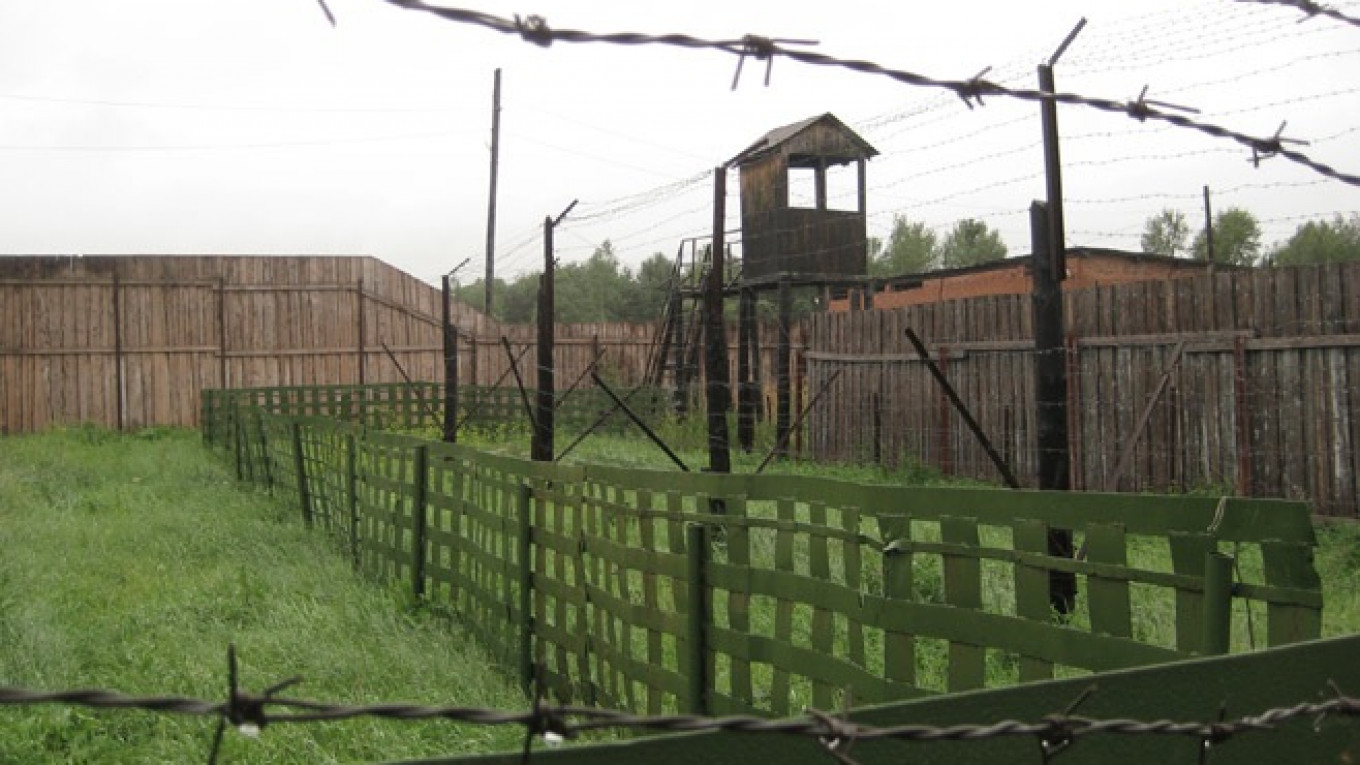A non-governmental organization that operated a museum commemorating victims of the Gulag may be branded a “foreign agent” despite having decided to fold, a news report said Wednesday.
Justice Ministry officials have found that the work of the NGO Perm-36, which operated a museum under the same name on the site of a former Gulag camp, carried signs of “political activity,” and that the group received foreign funding, Interfax reported Wednesday.
These two attributes make a group required to register as a “foreign agent” under a vaguely worded Russian law, which has slapped NGOs with the charged label that was synonymous with “spy” during the Soviet era.
The NGO announced in March that it would shut down following a state takeover of the museum last fall. Perm-36 had been in existence for more than 20 years, and the camp it renovated and maintained as a museum and memorial complex had been nominated for inclusion in the UNESCO World Heritage List.
A spokesperson for Perm-36 said the group would appeal the Justice Ministry decision, Interfax reported.
The ministry began investigating whether Perm-36 should be labeled a “foreign agent” last month, after a group of citizens wrote to say the group should be investigated, Interfax reported. The probe was completed this week.
In a separate investigation, employees of the NGO found police seizing the archives of the Perm-36 museum and locking down the building, Interfax reported.
“They said that the archives were sealed off by police based on a petition of some person, who asked to look into our activity,” the NGO's director, Tatyana Kursina, said.
Investigations based on anonymous complaints were a trademark of Soviet dictator Josef Stalin's purges, whose victims the Perm-36 museum sought to commemorate.
Regional authorities who took over the museum after it was pressured into folding intend to use the site as a memorial to the Soviet penal system with no mention of political prisoners and Stalin-era repression, museum director Viktor Shmyrov has told the BBC Russian Service.
A Message from The Moscow Times:
Dear readers,
We are facing unprecedented challenges. Russia's Prosecutor General's Office has designated The Moscow Times as an "undesirable" organization, criminalizing our work and putting our staff at risk of prosecution. This follows our earlier unjust labeling as a "foreign agent."
These actions are direct attempts to silence independent journalism in Russia. The authorities claim our work "discredits the decisions of the Russian leadership." We see things differently: we strive to provide accurate, unbiased reporting on Russia.
We, the journalists of The Moscow Times, refuse to be silenced. But to continue our work, we need your help.
Your support, no matter how small, makes a world of difference. If you can, please support us monthly starting from just $2. It's quick to set up, and every contribution makes a significant impact.
By supporting The Moscow Times, you're defending open, independent journalism in the face of repression. Thank you for standing with us.
Remind me later.






